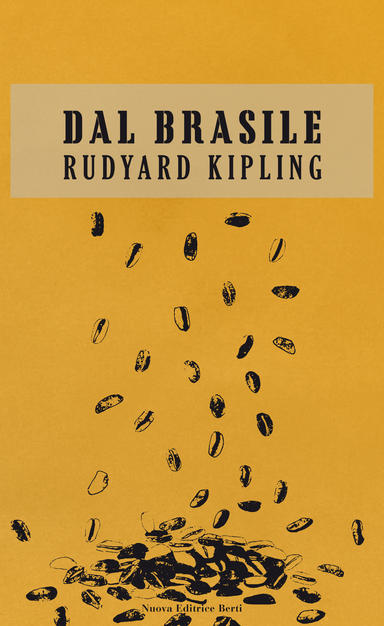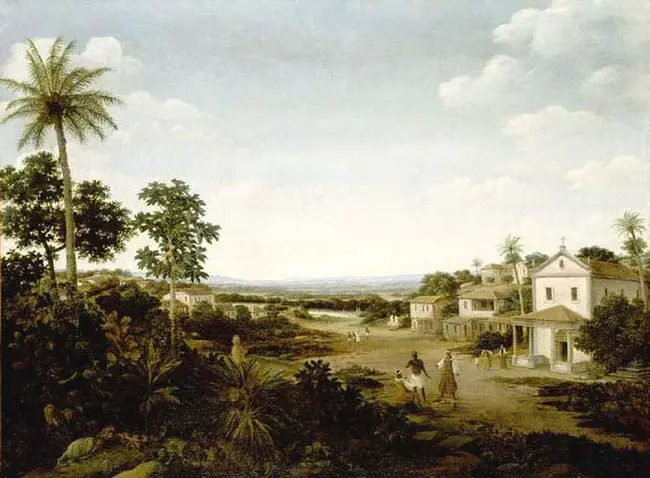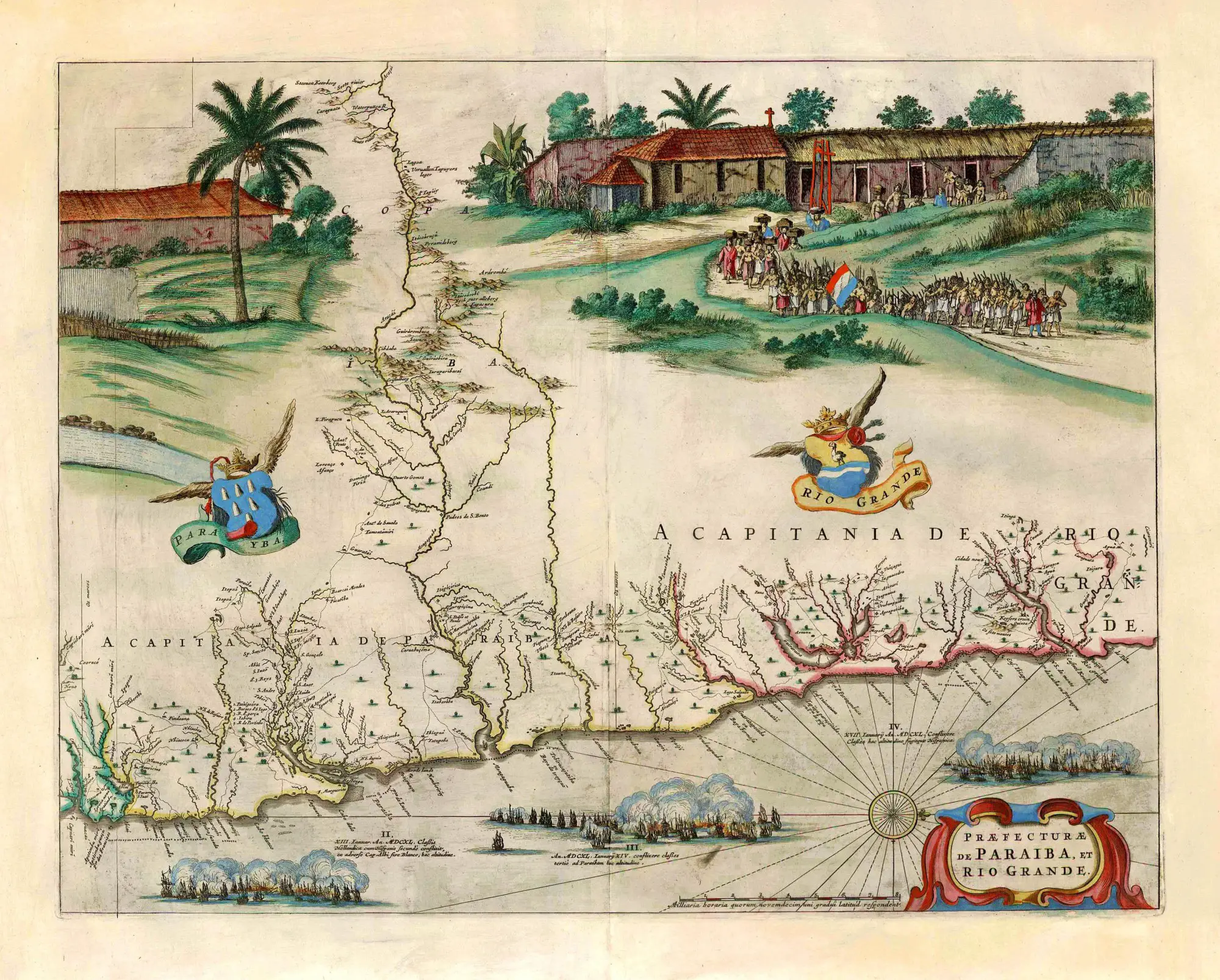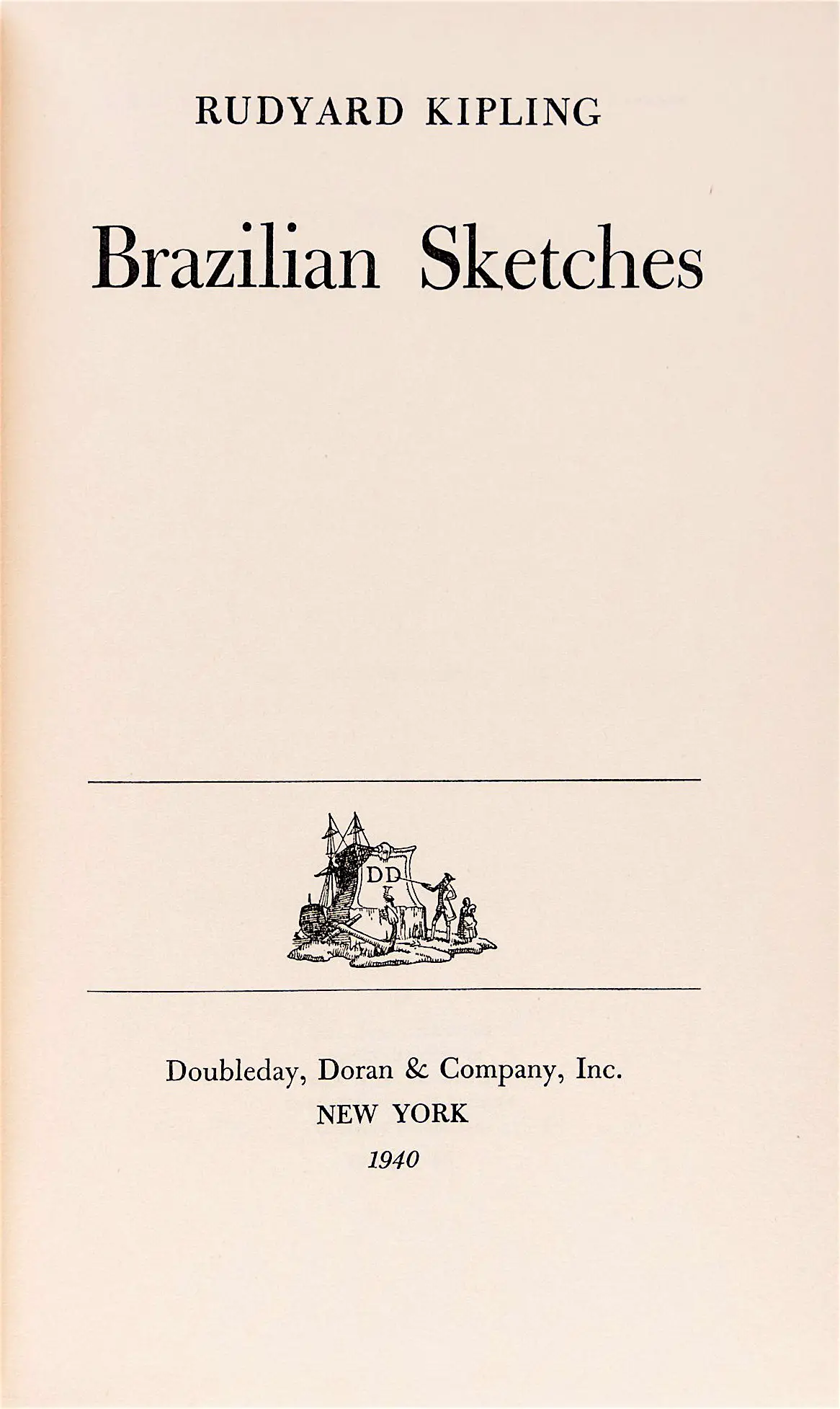In the spring of 1927, the British Nobel laureate Rudyard Kipling travels to Brazil with his wife and collects his impressions in seven articles originally published for the "Morning Post" and recently translated into Italian by Nuova Editrice Berti.
di Marco Maculotti
cover: Frans Post, A Brazilian Landscape, 1650
“Once, when I was a child, I wandered through a Fifth Corner of the world and found that there everything was different from any known reality, as only children and the old wish it to be. Now my dream has come true. "

Thus begins the narration of Rudyard Kipling of his Brazilian journey, made with his wife in the months of February and March of 1927, when the two had already left their youth behind and life had already tried them painfully. The travel letters - seven in all - that the writer sent to Morning Post in London will be published between 29 November and 20 December of the same year, and then on the pages of the Liberty for the US press, between 1927 and 1928. An edition that collects them all, with the title of Brazilian Sketches, will be printed by Doubleday Doran, in New York, in 1940. Each prose text is accompanied by a poem that serves as both an exargus and an epigraph.
«The writer» writes Massimo Scotti, «who has seen hundreds of different landscapes, finds the memories of his own Indian childhood in an unexpected magical, albeit distorting mirror: the Rio carnival and the amazing mountain railways, the farms where the snakes are raised and the ancient houses inhabited by mysteries are just some of the discoveries of Kipling in his exploration free from prejudices and perpetually suspended between disbelief and a sincere, never haughty passion for the exotic". As soon as he landed on the Brazilian coast, Kipling immediately realizes, almost as if caught by a sudden illumination, that:
«There was an ancient and fascinating life beyond those green coasts […] but even further inland, a world almost intact. […] We let ourselves be carried away by the current of that new society; all links with the rest of the world were broken. Those places belonged to another Power, built on foundations completely unknown to us. "

Most of Kipling's notes are triggered by the reflection dedicated to the dichotomy existing between the "civilized world", that is to say the Anglo-Western world which, after settlers and explorers, also imported the fruits of Industrial Revolution, and the "indigenous" one which, however, having at least a couple of centuries of colonization behind it, appears more like a melting pot of ethnic groups and different customs rather than as a native universe understood in granite, on the model of Rousseau's "good savage".
In the poem that introduces the third writing, entitled The song of the dynamo, Kipling is aimed directly at the dynamo engine, imago visible and terrible of the industrial revolution, which reached the Amazon to stem the Chaos of the Green Hell with the technical of the white man. The poet asks him:
"How can I know
if you control the Powers that make me move?
I only know that they are one
with the true powers that tear
the Firmament above me
and they can destroy the Earth
saving me alone. "

Thus emerges, in Kipling's soul, the immeasurable ambiguity of the consequences of the advent of industrial progress, positive for man, lethal for the forest. Especially impressive is the chapter dedicated to railway builders, often engaged in manually fixing the rails on mountain slopes with even two hundred meters of difference in height: "The mountains rose majestically and magical, with hammerhead-like peaks or similar to rock fangs, velvety, with vertical slopes covered with thick and tenacious virgin forests "; it is the job of the unskilled workers to counteract all the dangers inherent in these mountain faces day after day virgin forest it continually threatens to bring it back to its original state, engulfing the work of man in its own vegetal embrace.
Yet, the deep soul of South America of previous centuries does not seem to retreat in the face of the advance of the 'infernal' machines brought by the white man. Although "the swamps dried up, the fever was defeated, the trucks took the place of the mules", nevertheless "the dark heart of the ancient city [of Santos], with its violently colored houses and warehouses overflowing with coffee, still seems to narrate in a whisper the times of barracks, slaves and diseases":
"Behind the luxury, progress and development, the pretensions of this or that school of thought, behind the clamor of the newly landed aliens, one can still perceive the spirit of the first captains and flags - the trumpet blasts, the armies - hidden but always present - while the live embers await under the ashes of a distant season for the moment to resurrect and dominate this seductive, enigmatic world apart. "

Not to mention the poisonous snakes and tarantulas, which Kipling defines as "little children of Death", created "by the Devil himself", which despite all the tricks of the settlers to make everything "neat and clean" do not seem at all to decrease by number. There jungle thus appears, in the eyes of the English writer, as a immeasurable womb capable of engulfing (human) lives and perpetually materializing the living forms of wild nature, almost as if he were fighting a real war against the "Progress" brought by the white man:
«It seems that the Earth, like the Sun and the brightly colored houses, exaggerates by playing its role in the immense and flourishing drama of this world apart. "

"Apparently, in the great light of the sun, everything must be showy, theatrical: and this is perhaps the secret of the Latin peoples," Kipling comments. What better occasion to corroborate this thought of his Rio Carnival, during which "the city goes completely crazy", between huge silhouettes and allegorical floats paraded by the various guilds and guilds of the city:
"Groups of black men and women, united by a rope, formed barbarian groups and processions, colored red, green and yellow, and so they advanced in time, shaking the ground and the air with the timbre and roar of ancestral melodies , moving through the crowd to the rhythm of samba. It was pure Africa. The link with the origins did not seem to be interrupted. "

The Brazilian territory, already other in a geographical sense from the point of view of the English visitor, it becomes other also from an ontological perspective, creating a dichotomy between the "civilization of science and reason", which is obviously the Anglo-Western one, and the indigenous culture which is not - mind you - neither the absence of a civilization nor an earlier ("pre-logical") phase with respect to Western civilization of a rational nature. An operation, however, already found in other Kiplingian works, such as i Tales of Anglo-Indian Terror, written at the end of the previous century, from 1885 to 1893.
It is also for this reason that it is not permissible, despite what some say more by hearsay than anything else, to hastily label Kipling as a "racist": while not ignoring some of his pro-imperialist positions, in his works a sense of wonder is always perceptible if not of admiration for cultures other, which he does not limit himself to sketching using commonplaces and prejudices, but rather investigates with the thirst of the true man to know,explorer of other times. Thus, for example, in the poem that opens the concluding chapter - the one dedicated to the Rio Carnival - entitled Two races, it is read:
“Our dawns and our beloved dead
they impose and control our lives
are separated from their origins: daughters of a single source,
but different streams, as distant as the Poles.But even though our worlds are so disjointed,
meeting you can be showing
that big and generous heart that
the neighbor can seldom see.[…] In the short space of a moment
everyone could be satisfied
and discover that the other is a marvel
to then return to his race, enlightened. "


A comment on "Rudyard Kipling's “Brazilian notebooks”"